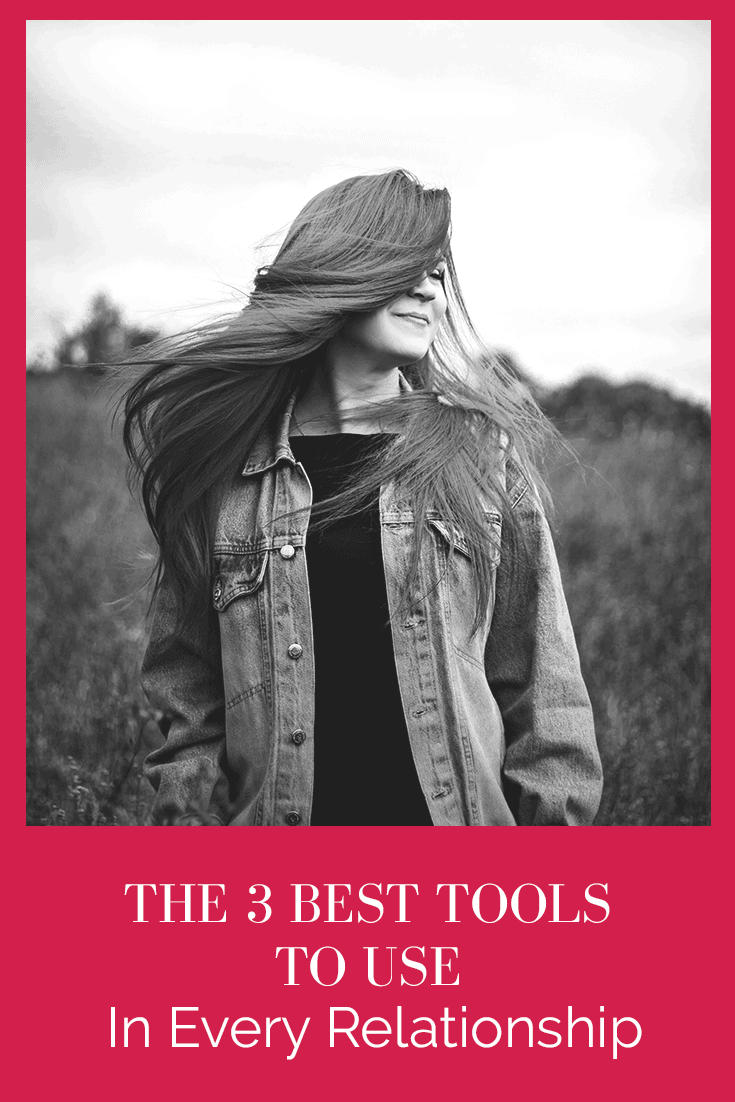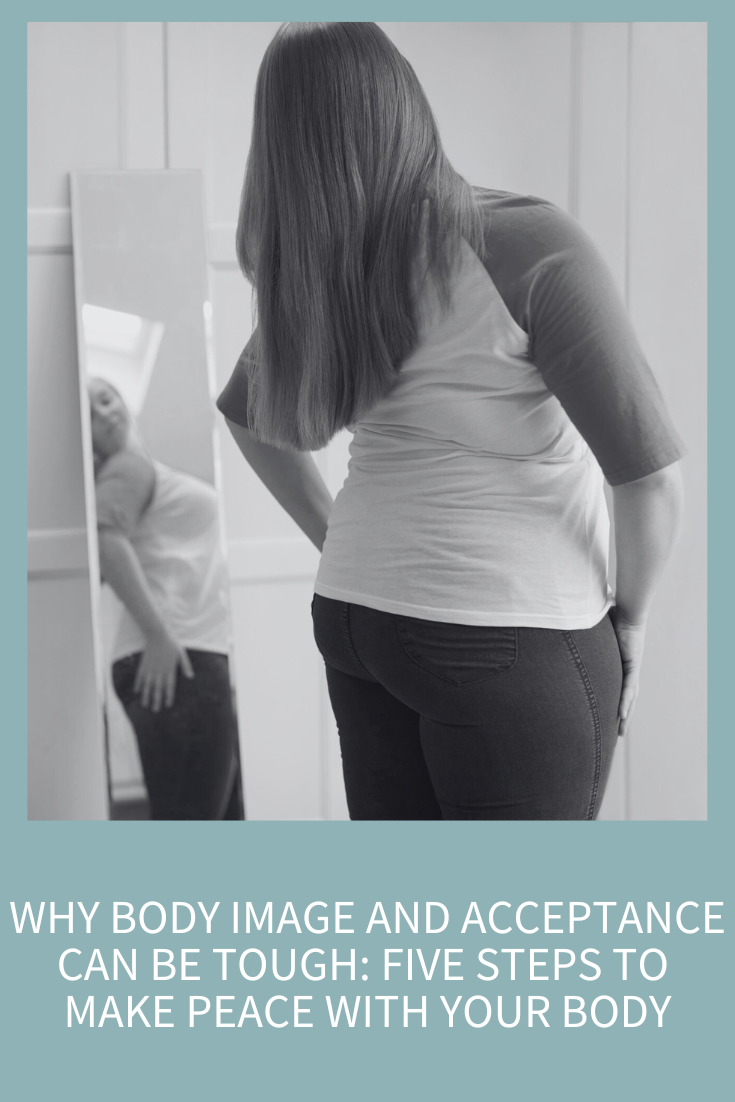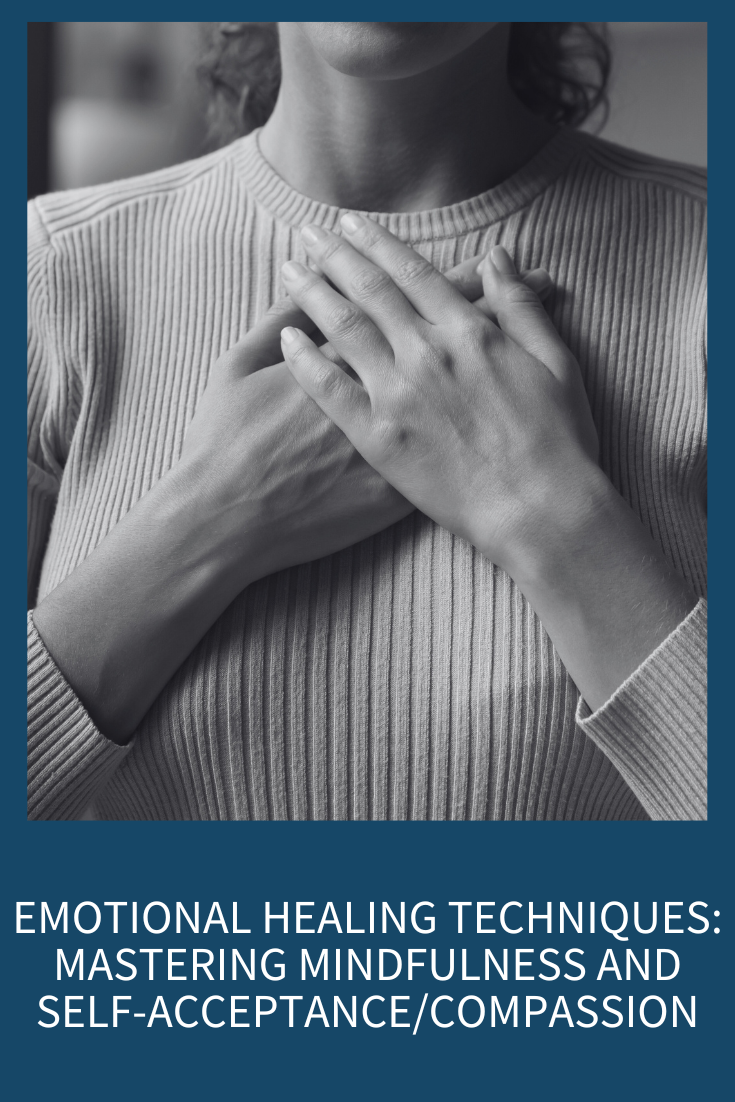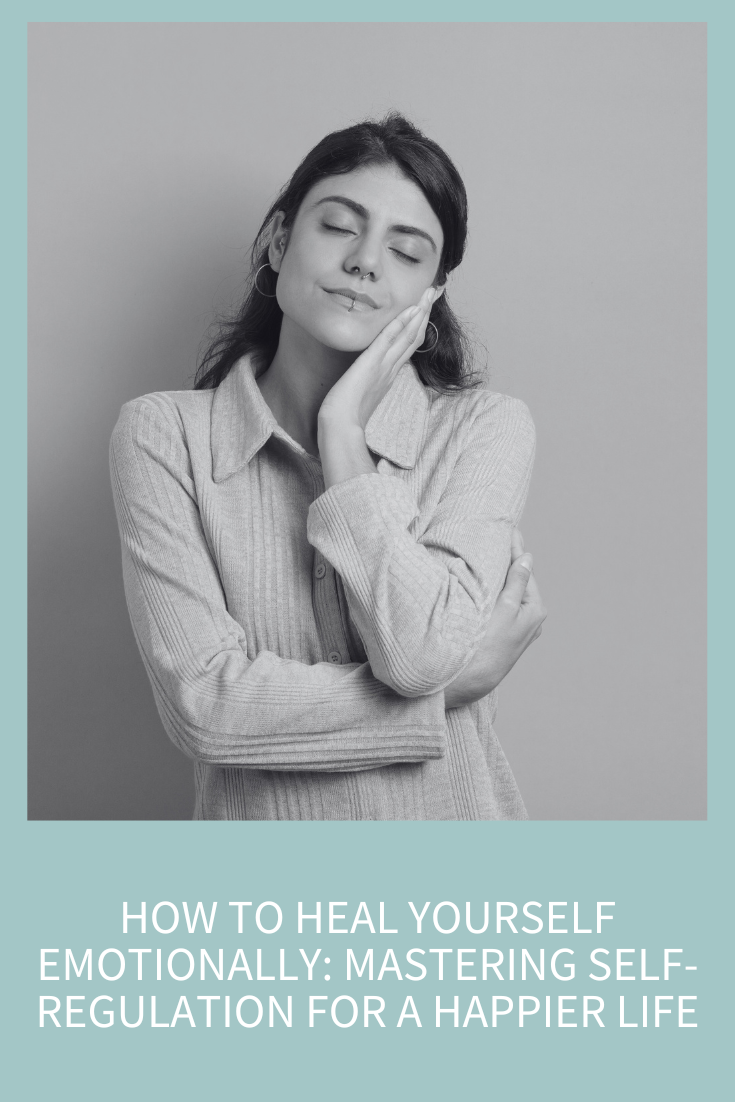
I have long believed that the tools I teach apply to any and all relationships. However, most of us were taught to act differently everywhere. How you act with your boss at work isn’t how you’re supposed to act with your best friend. The idea has always been that there are work communication tools, couple’s communication tools, and different techniques you’d use with your children, parents, and Aunt Joan.
That’s a mistake. You are one, whole person. When we divide ourselves into different compartments it becomes exhausting and frustrating. It’s hard to know what’s right in each situation. “Am I saying too much? Too little?” “Did I just embarrass myself?”
I want you using the same tools everywhere. There’s one “you” in your relationships, and that’s it.
Here’s the key: Your tools and ways of being are the same across the board, but your boundaries are distinct in different types of relationships.
So, before I talk about the 3 Universal tools that work in every relationship, I want to talk about this boundary piece.
Let’s Talk Boundaries!
I’ve talked about boundaries before but let me brush you up on an aspect that’s critical to understand here. Namely, boundaries are on a continuum from thin to thick. I want you to imagine a straight line. On one end are the thin boundaries and on the other end are thick boundaries.
Let’s talk about each extreme. Thin boundaries are also what we psychologist types refer to as enmeshment. This can happen in all kinds of situations and is a sign of unhealthy boundaries. If you’ve ever watched the show Smothered, you know what I’m talking about. It’s when people are too close and sharing too much and there are virtually no boundaries anywhere.
Sometimes this happens in a family when there’s only one parent, so the parent and their child become like a couple and the child ends up being parentified. They might act like an adult even though they’re five-years-old. This can happen in families with intact parents too though, especially when one partner is gone a lot and the other parent over-identifies with their child. Parents who say their kid is their best friend (and the kid is 10) would fall in this category.
Maybe you knew too much about your parents’ finances or sex life growing up. Maybe you weren’t allowed any privacy so got used to talking about everything with your mom. Then, you get married and expect your partner to do the same. If they have any boundaries or want privacy in different places, you take it as a personal affront and as proof that they don’t really love you.
I’ve interviewed people for jobs who told me that they were going through a divorce or how much their mortgage was – too much information and not appropriate for the first time meeting someone for a job.
I’m not saying any of this with negative judgment, by the way, but there is such a thing as too close. In the big picture, enmeshment is a problem because it basically stops people from developing a true sense of self. Kids from these families have trouble regulating their emotions, have low stress tolerance, and find it hard to stand up and assert themselves. All of these issues come with us into adulthood and we often perpetuate the problem – it’s how we were raised so we think it’s good to do the same to our own children.
Or, you might have grown up in a house with super thick boundaries (which I’ll talk about in a minute) and you think that you don’t want to do that to your own kids, but you swing the pendulum too far in the other direction and end up with unhealthy boundaries.
Now let’s talk about the other side of the spectrum: thick boundaries. If you called your dad, “Sir,” that’s a thick boundary. If you weren’t allowed to give your opinion at the dinner table growing up or sit on the couch in the living room or go to the kitchen to get a snack without permission, these are thick boundaries. It’s when there are a lot of rules, formality and no emotional closeness.
Kids who grow up in these homes learn not to share much at all and often have an avoidant attachment style. They grow into adults who don’t feel a need to share feelings or their thoughts on things and can seem very self-contained and sometimes even cold.
Let me point out, it’s never good to be fully on either extreme. Even in the military, yes, you have thick boundaries with all the rules and “yes sir, no mam” but there’s still emotionality present. The terms “corps, fidelity, and loyalty” are all central to the armed services because these are situations where people actually get very close and are often in positions to lay down their lives for one another.
Different types of relationships call for different boundaries, along that thin/thick continuum.
With a romantic partner, you’d be leaning more heavily towards thinner boundaries since you’re being vulnerable, sharing feelings and there’s a lot of (hopefully) emotional closeness. With your kids, we’re looking at thicker boundaries than in your romantic relationship, but likely thinner than you have at your job. Friendships would have thinner boundaries too.
At work, you’re looking at being somewhere in the middle but maybe leaning a little one way or another depending on the kind of work you do. If I’m a police officer and my partner is going through a divorce, that’s actually important to know for our bonding and to be aware in case they’re distracted and not 100% on the job, which could put us both in danger. So, a little bit thinner of a boundary than if I’m doing data entry somewhere, where my personal life doesn’t need to be broadcast.
So, I want you to be clear about your boundaries, but use the same tools and philosophies everywhere so you can be one full, integrated human and show up best in the world.
Now that you feel all solid on this whole boundary thing, let’s get to those tools that I want you to have as the foundation of every relationship you’re in:
Three Tools for Every Relationship
1. Stop Competing
It’s time to have a new philosophy in life and love: Everyone wins (including you but not instead of you). You might be sick of me chatting about competition but it is absolutely undermining all your relationships.
Keeping score at home sets people up on opposite teams where you’re thinking, “If my partner gets this thing, it means I’ll have less.” We’re brought up with this type of thinking (it’s your turn to put away the dishes) and we learn to keep score. We watch what other people are doing and compare it to what we’re doing all the time (and we’re always doing more)!
The next time you’re in an argument with your partner and they ask for something, instead of listing all the things you did do (so how could they possibly feel that way?) listen to what they’re saying and do that! Understand that, despite how much you’ve done, it’s not what your partner wanted from you.
Competing at work isn’t good either. At work, competition breeds secrets and fear, so you’re not taking risks easily; you’re not collaborating or sharing, so you’re not as creative or productive (or happy). I’m not saying you can’t compete with other companies – but within your company it’s not going to set up for a thriving workplace. Also, your own anxiety and tension will be high as you’re constantly looking over your shoulder or trying to figure out how to “get over.”
Now, I get LOTS of pushback on this one usually: “Abby, if I don’t keep that competitive edge at work, I’ll never get ahead and other people will walk all over me and take all the credit!”
I know it seems that way but hear me out. It’s all about what you put out there. I’ve talked about this before: people don’t hear what you say, they hear what you mean. You know this is true because you’ve experienced it yourself. Bob from accounting is saying all the right things, but you just know he’s out to stab you in the back or undermine you first chance he gets. You can feel it.
Remember that your conscious brain processes information at a rate of 50 bits per second but your unconscious is processing way faster at a rate of 11 million bits per second. It’s your unconscious brain that’s picking up on Bob’s treachery.
Well, Bob also knows when it’s coming from you! So, if you have that mindset going in (I’m going to take care of myself and screw anyone who gets in my way), people pick up on that and act accordingly. You then see this and say, “Look! I’m right!” But the reason you’re right is because you’re putting that energy out and people are picking it up and acting in kind.
It’s amazing how few people screw me over anymore now that I have this mindset. I’m not saying it’s never happened, but it’s RARE! And I’m not going to act like an asshole because I’m worried about the once a decade that someone takes advantage of me.
And this brings us to the second philosophy or tool to have as your foundation in all your relationships
2. Focus on Love, Not Fear
What you focus on grows. Plain and simple. If you’re focusing on people taking advantage of you, I promise you’ll see it everywhere. I’ve talked often about your Reticular Activating System (RAS), which is a filter between your conscious and subconscious mind. When you consciously think something like, “Men are jerks,” the RAS feeds that to the subconscious as the order or instruction: “Look for men being jerks.” Surprise, surprise… you meet a lot of a-hole men. But, it’s not because “all men are stupid” or that even most of them are. It’s about what you notice.
That’s bad enough but the RAS also does something else that’s hurting you and skewing your perceptions. It’s also filtering out anything that doesn’t match that conscious order! So, when you meet a nice guy or a mechanic who’s honest (I have one of those), it doesn’t register. You become like Teflon for nice men! Once again, you’re in that self-fulfilling prophecy where your beliefs keep showing up in the world.
Here’s a radical idea: what if you believed that the vast majority of people were good?
What if you believed that miracles, ease, joy and fun were around every corner? These same beliefs can be programmed into the RAS and positive things will miraculously start showing up all over the place.
This doesn’t mean that sucky things don’t happen. It means it doesn’t ruin my day and I don’t then generalize these things to my whole life. Here’s something interesting: I meet a TON of lovely people just about every day. Because, when I’m out in the world, I have an intention of connecting and being friendly. Can I be of service? I see those around me and they see me right back. Bingo – awesome people everywhere.
Focusing on love not fear means having faith in love. And why not? Think about fearful emotions: hate, fear, anxiety, despair, worry, frustration, resentment (you get the idea). When you’re in this mind space, of course you can’t see anything else. But, what if you were in the love emotions? Kindness, compassion, openness, joy, ease, comfort, connection (you get the idea here too). This is where you’re meant to live. You weren’t put on this earth to be miserable, but you have to decide where you want to focus.
Putting your faith in fear (I’m worried that, I’m anxious about, What if?) isn’t helping you. It’s not making you any more prepared than I am and I’m over here feeling happy, at ease and connected every day. I want to bring you from the dark side into the Light and focusing on love-based emotions will get you there!
As a quick route to do this, I just check in with how I’m feeling at any given moment. Is it on the love side or the fear side? Am I feeling anxious, resentful, worried, rushed, or overwhelmed? That’s fear. If I’m there I acknowledge it and then ask myself what else I could feel from the love-side. Maybe I need to stop judging myself or maybe I need to remember to be patient or kind as I notice I’m frustrated with one of my teenagers. Choose the better-feeling, love-based emotion.
3. Make the 18-Second Shift
The best way to make all these things happen is to set intention as often as possible. Setting intention gets that RAS into gear.
Of all the tools and tips I dole out, this is the one that client after client says is an absolute game changer! I call it the 18-second shift because that’s an average of how long it takes to do. Basically, you want to set an intention before the majority of interactions or during transitions.
Setting intention simply means you take a breath and decide how you want to show up in the world. I set intention every morning when my feet hit the floor. I do it again before meetings, before I walk in my house at night after work and before meeting with all my clients.
Your Seven-Day Challenge
Think about your day right now and the different people you’ll be interacting with. In each and every interaction, imagine coming from love, not fear. Imagine feeling no competition with anyone. You’re abundant! There’s plenty of everything to go around! You want everyone to win!
For the next week, I want you to take that into action by setting intentions around these concepts throughout your day.
You wake up in the morning, feet hit the floor and you set your intention for being loving, kind and patient with your family this morning.
As you sit down for that Zoom meeting, you take a deep breath and set your intention to be thoughtful, patient, to listen with curiosity.
You hear the phone buzz and see that your mom or best friend is calling you. Before you answer, take a breath and set an intention to be of service, loving, a great listener, open.
If you’ve been away from home, before you walk back in your house, you set an intention for how you want to be the rest of the evening with yourself or your family: I want to be present, compassionate, maybe even fun or sexy! You make the call.
Set intention as often as you can. It programs that RAS and you’ll start to catch yourself in your moments when you’re not acting this way. You’ll start to be fully present in all your relationships and really be the person you want to be. These tools will help you find your true self so you can show up fully in your life.
Do you like my podcast? Then it would be so helpful if you left a review! Here’s how:
- Launch Apple’s Podcast app on your mobile device (you can also find it in your app store).
- Use the search field to search for Relationships Made Easy with Dr. Abby Medcalf and tap on it.
- Scroll down until you see Write a Review – tap on it to leave your review!








